“真正的问题来自西方":艾未未将矛头指向美加有何用意?(附:The west is complici...
转自:新世纪,文章内容并不代表本网立场和观点。
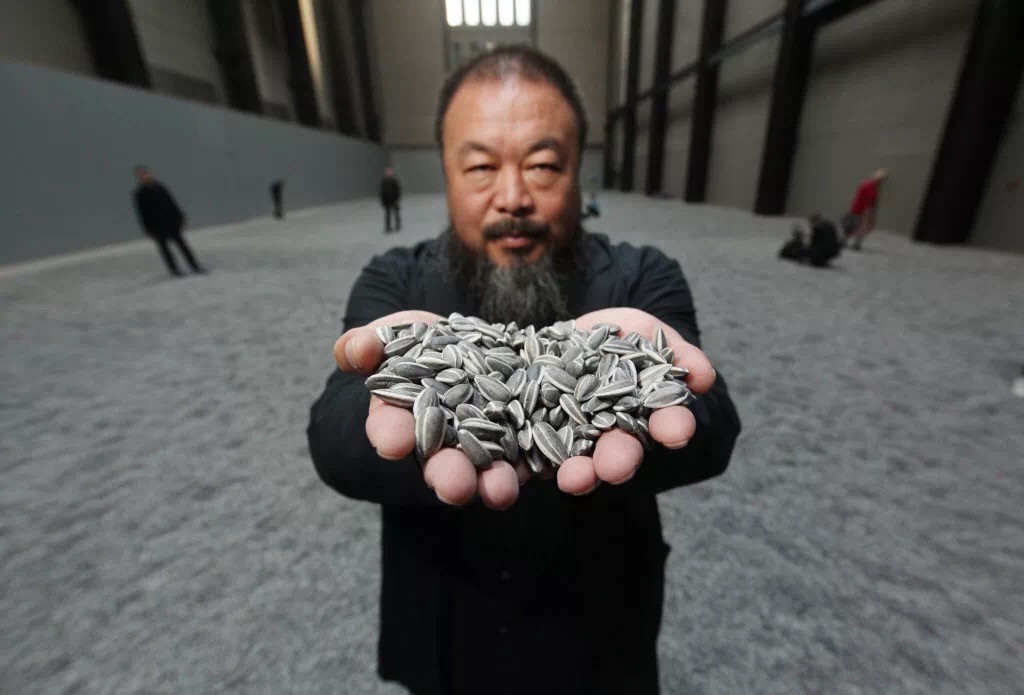 艾未未在泰特现代美术馆(Tate Modern)捧着他在联合利华系列装置《葵花籽》中的葵花籽。图片:Photo by Peter Macdiarmid/Getty Images
艾未未在泰特现代美术馆(Tate Modern)捧着他在联合利华系列装置《葵花籽》中的葵花籽。图片:Photo by Peter Macdiarmid/Getty Images
出生于北京的艺术家艾未未一直以来都直言不讳地进行批评,随着美国、加拿大和中国之间的关系逐渐微妙,他现在也将批判性的目光转向了西方。
相关阅读:
“谁还需要多一场展览?”,艾未未畅谈最新生活动向
艾未未把旧衣物堆积成山,如何把难民危机做成一场充满力量的展览?
加拿大多伦多加丁纳博物馆将要在2月底进行一场大规模的艾未未作品展览。在其发布的一份长篇的声明中,艾未未将西方称为“中国崛起背后隐藏的力量”,并指责它“从现状中获利” 。
这份声明发布之际,中国与西方的谈判正在一个尤其令人关注的时刻。最近,加拿大(在美国的要求下)逮捕了中国电子巨头华为的首席财务官孟晚舟,中国相关部门随后逮捕了数名加拿大公民。
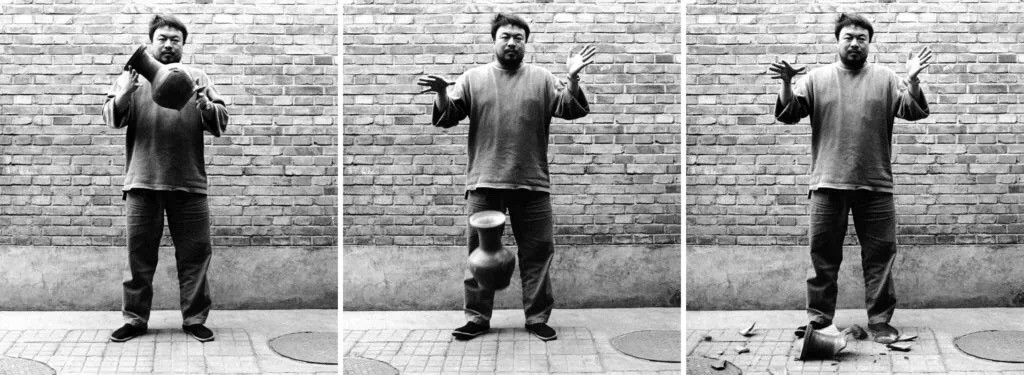
艾未未,《打破一只汉代瓮》(1995)。图片:Courtesy of Ai Weiwei Studio and the Gardiner Museum
“西方与中国局势的明显冲突,是因为西方拒绝承认它们共同参与制造了这个可怕的局面。”艾未未写道,“最终,什么都不会改变……我认为在这种情况下,中国做得够好了。真正的问题来自西方,是西方完全缺乏远见和责任感。”
加丁纳博物馆的这场展览题为“艾未未:不屈服”(Ai Weiwei: Unbroken),其中将包括许多着眼于社会传统问题以及生活在暴政体制下公民困境的作品。该展览突出了艺术家长年职业生涯中的主要作品,包括《打破一只汉代瓮》(1995)——在这件作品中,艺术家将一件古代瓷器亲手摔碎,隐喻了打破陈规;展览还包括描绘中国十二生肖动物的乐高系列新作品。
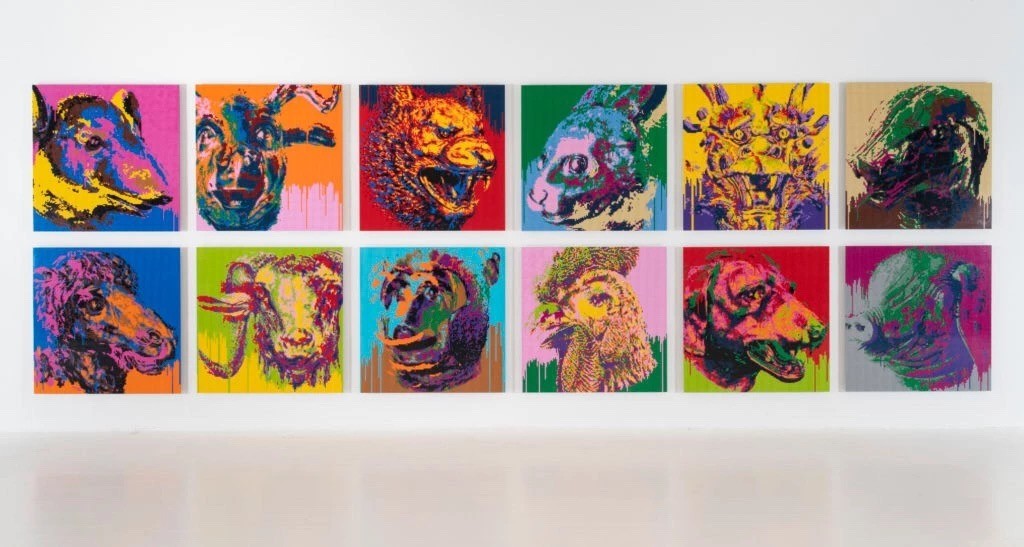
艾未未,《生肖》(2018)。图片:Courtesy of Ai Weiwei Studio and the Gardiner Museum
在一份关于这位艺术家的声明中,加丁纳博物馆首席策展人Sequoia Miller说,鉴于目前的政治形势,艾未未传达的信息“仍然非常重要,甚至比从前更关键”。
以下是艾未未的声明节选:
“中国政府最近采取的行动并不令人意外。在过去的70年里,他们一直以自己的方法行事,拥有自己的一套意识形态和实践方式。
今天,中国是世界第二大经济体,仅次于美国。中国发展很快,西方也从这种伙伴关系中获益匪浅。
西方一直假装没有注意到,或者更加阴险地,是一个愿意配合的伙伴。它们是中国崛起背后隐藏的力量。
中国一直是西方的一个完美梦想。在全球化的旗帜之下,中国做到了西方所不能做的一切,并且帮助那些民主国家成为了今天的样子。西方与中国局势的明显冲突,是因为西方拒绝承认它们共同参与制造了这一局面。
最终,什么都不会改变。你还能期待什么?我认为在这种情况下,中国做得够好了。真正的问题来自西方,是西方完全缺乏远见和责任感,只在乎从现状中得利。”
转贴附:
The west is complicit in the 30-year cover-up of Tiananmen
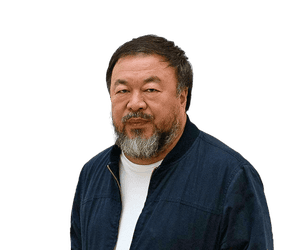
Ai Weiwei
Beijing’s continued whitewashing cannot expunge our collective memory of the killings of 4 June 1989
Shares
88
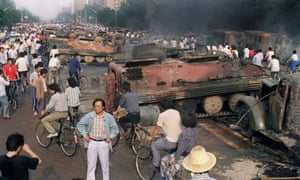
The events of 4 June 1989, when the Chinese government deployed the full might of its military to purge Tiananmen Square of students who’d been peacefully protesting there, have become known in China as the “June Fourth Incident”. Thirty years on, it is still thought of as an “incident”, a one-off event. In fact, it was part of a political movement in which every major Chinese city participated. To this day, a complete definition of 4 June 1989 as a historical event has not been realised, because defining a historical event requires not only the full facts but also multiple perspectives. And in its aftermath, the Chinese government intensified its oversight of free expression in China, deploying various tactics to suppress, arrest, detain and imprison anyone who spoke about “June Fourth”. It remains the most taboo and politically sensitive topic in China, much like the questions of Tibet and Xinjiang for the Chinese Communist party (CCP) and its machine of propaganda and censorship. Yet the facts and significance of “June Fourth” are not discussed in China. The exact events, the persons responsible for issuing directives, the methods of execution, the number of people killed and detained, and the killers responsible for the cumulative political decisions remain unclear.
What now, 30 years on, is its significance? The need to examine this question is vital, rational and urgent. If the CCP relied on violent revolution to overthrow the previous regime and establish its legitimacy, then “June Fourth” once again overthrew the legitimacy of the ruling party. The Communist party is a regime that used violence to supplant dialogue, directing its army and tanks against unarmed citizens to maintain its existence. Despite attempts to cover up, whitewash and misinterpret “June Fourth” over the past 30 years, from the moment the first bullet was fired that day the regime’s legitimacy was compromised. Nothing can change that.
On 4 June, CNN’s 24-hour live broadcast conveyed the event and its developments to any audience that could receive its signal. I watched from New York. Viewers in New York probably witnessed a more comprehensive version of the incident than my family in Beijing. In New York, I organised and participated in many demonstrations of solidarity with the students in Tiananmen Square, protested before the Chinese consulate, and took part in a hunger strike at the United Nations.Why does a political power attempt to suppress reality? I have always wondered about totalitarian regimes’ fear of facts. As a political dissident, I insist on seeking the truth and resist attempts to change my memory of events. Because facts constitute the foundation of my understanding of the world. Upholding reality is a precondition for the mind to function. Otherwise, the world before us is disordered and chaotic; a world gone mad.
Why do autocratic and totalitarian regimes, in fact most forms of power, fear facts? The only reason is because they have built their power on unjust foundations. Once facts are established, justice will be restored. And this is the greatest fear of powerful regimes. This is true not only of China, North Korea, or most non-democratic societies, but also some societies with democratic frameworks. When I consider the experience of whistleblowers such as Edward Snowden, Chelsea Manning or Julian Assange, they remind me of my time living in a totalitarian society that suppresses and whitewashes fact, creates no-go zones and fears the light of public disclosure. Even if the lives of an entire generation are wiped out, no prisons and no amount of lies or censorship can expunge or conceal the facts. This is why memory – individual and collective – is such an important part of civilisation. To remove the memory of the past is to rob what is left of an individual, because our past is all we have. Without it, there is no such thing as a civilised society or nation. Any attempt to destroy, remove or distort memory is the act of an illegitimate power.
China is a society without citizens. It is dominated by the CCP. And even after 70 years in power the government still does not trust its people: 1.4 billion have never in those 70 years had the opportunity to vote for their rulers. As a result, there is no freedom of speech and information. The memory of the past is an individual’s property. Its details are the veins carrying blood in the body, giving life to truth. To deny them is to obliterate humanity. Happiness, sorrow, wealth or poverty is all we possess. Once that is taken away, we simply have no future: when there is no past, the word “future” loses its meaning.
When we talk of the past and of fact, it is essential to emphasise the importance of freedom of speech. When facts are changed, freedom of speech does not exist and has no meaning because this freedom cannot exist without an individual’s understanding, vision, emotion and interpretation. What we call social justice could never exist without open discussion in the public sphere because fairness and justice are necessary for public welfare and to maintain a harmonious society. Whenever social justice is missing, there will be crisis and tragedy. This is why we cleave strongly to fact and refuse to forget. This is how we give definition to an individual’s mind, and why we must protect the dignity of being.
What occurred on 4 June is not merely a Chinese issue. It is not simply an event that happened 30 years ago. Injustice is timeless. It haunts us and affects our state of mind until the day justice is served.
At the same time, the tolerance of injustice and distorted information is an act of encouragement and complicity. Such tolerance allows authoritarian regimes to transgress any red lines. This is exactly what happened after “June Fourth”, when the west bought into the excuse that Chinese society would become more democratic after it became richer. China has become wealthier and more powerful on the world stage, but it has never matured into pluralism or democracy. It continues to reject fundamental values of openness, social justice, fair competition and freedom. We will all pay the price for this failure.
• Ai Weiwei is a contemporary artist, activist and advocate of political reform in China
At this critical time…
… for our natural world, our societies and our media, The Guardian is committed to a different model for open, independent journalism – sustained through generous reader support. When progressive ideals are being challenged by those in power across the globe, we’re dedicated to investigating with courage and reporting with honesty. But we need your ongoing support to keep working as we do.
The Guardian will engage with the most critical issues of our time – from the escalating climate catastrophe to widespread inequality to the influence of big tech on our lives. At a time when factual information is a necessity, we believe that each of us, around the world, deserves access to accurate reporting with integrity at its heart.
Our editorial independence means we set our own agenda and voice our own opinions. Guardian journalism is free from commercial and political bias and not influenced by billionaire owners or shareholders. This means we can give a voice to those less heard, explore where others turn away, and rigorously challenge those in power.
发文者:NCN管理员 发布时间:6/04/2019 12:17:00 上午



 脸书专页
脸书专页 翻墙交流电报群
翻墙交流电报群